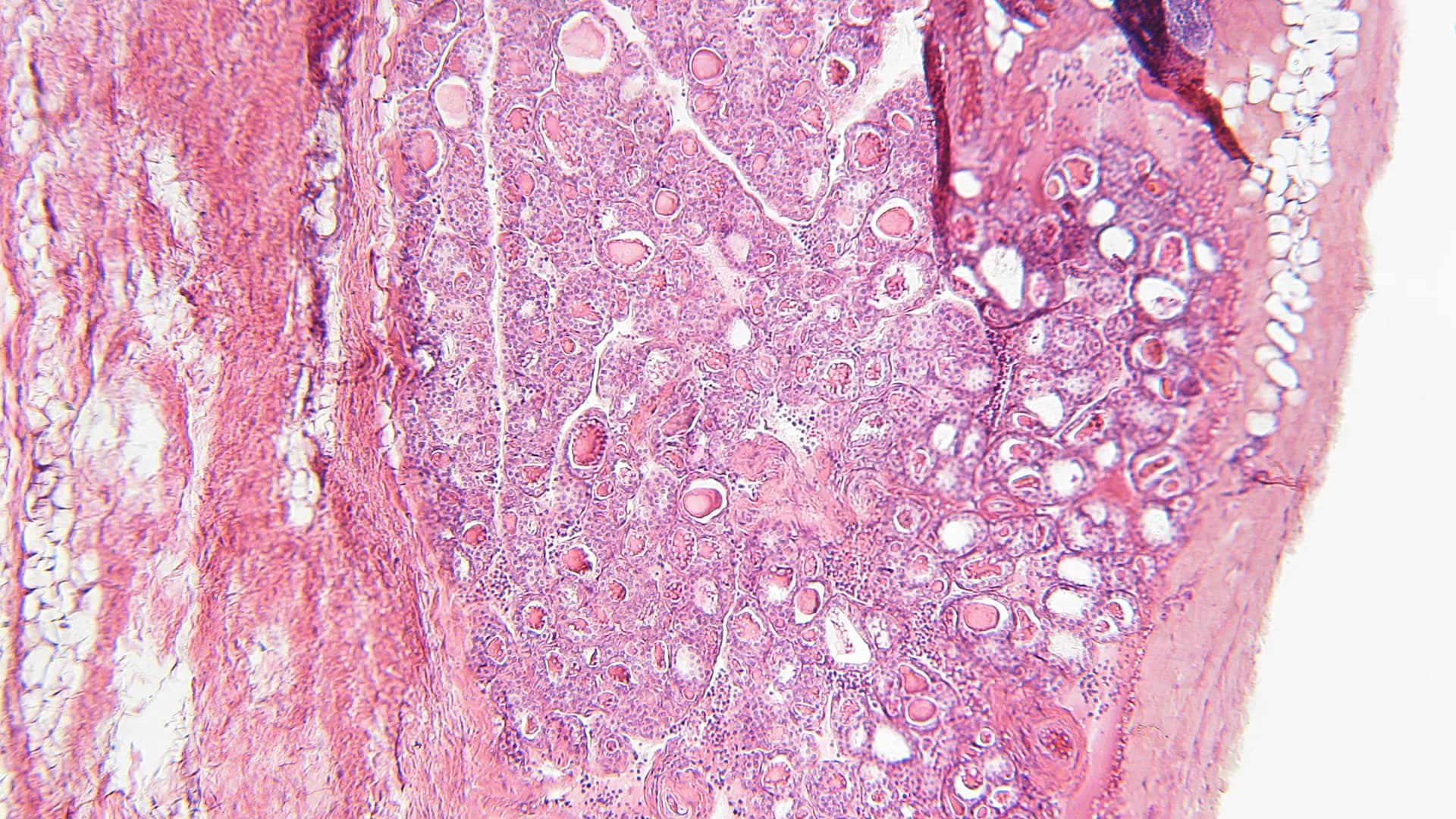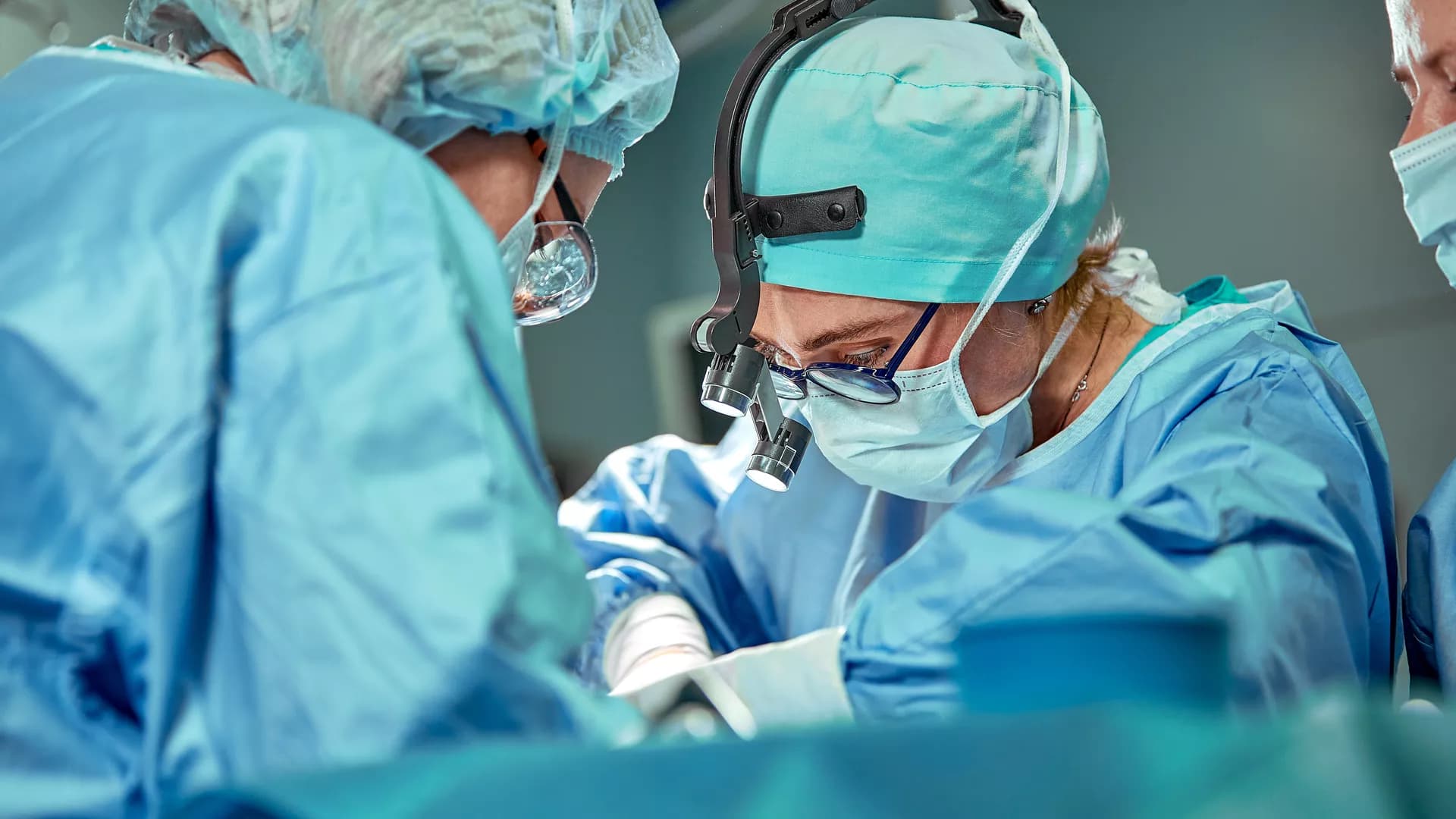Coronavirus disease 2019 (COVID-19) was characterized as a pandemic in March, 2020 by the World Health Organization. COVID-19 is a respiratory syndrome that can progress to acute respiratory distress syndrome, multiorgan dysfunction, and eventually death. Despite being considered a respiratory disease, it is known that other organs and systems can be affected in COVID-19, including the thyroid gland. Thyroid gland, as well as hypothalamus and pituitary, which regulate the functioning of most endocrine glands, express angiotensin-converting enzyme 2 (ACE2), the main protein that functions as a receptor to which SARS-CoV-2 binds to enter host cells. In addition, thyroid gland is extremely sensitive to changes in body homeostasis and metabolism. Immune system cells are targets for thyroid hormones and T3 and T4 modulate specific immune responses, including cell-mediated immunity, natural killer cell activity, the antiviral action of interferon (IFN) and proliferation of T- and B-lymphocytes. However, studies show that patients with controlled hypothyroidism and hyperthyroidism do not have a higher prevalence of COVID-19, nor do they have a worse prognosis when infected with the virus. On the other hand, retrospective observational studies, prospective studies, and case reports published in the last two years reported abnormal thyroid function related to acute SARS-CoV-2 infection or even several weeks after its resolution. Indeed, a variety of thyroid disorders have been documented in COVID-19 patients, including non-thyroidal illness syndrome (NTIS), subacute thyroiditis and thyrotoxicosis. In addition, thyroid disease has already been reported as a consequence of the administration of vaccines against SARS-CoV-2. Overall, the data revealed that abnormal thyroid function may occur during and in the convalescence post-COVID condition phase. Although the cellular and molecular mechanisms are not completely understood, the evidence suggests that the “cytokine storm” is an important mediator in this context. Thus, future studies are needed to better investigate the pathophysiology of thyroid dysfunction induced by COVID-19 at both molecular and clinical levels.
Background: Observational studies have reported an association between coronavirus disease 2019 (COVID-19) risk and thyroid dysfunction, but without a clear causal relationship. We attempted to evaluate the association between thyroid function and COVID-19 risk using a bidirectional two-sample Mendelian randomization (MR) analysis.
Methods: Summary statistics on the characteristics of thyroid dysfunction (hypothyroidism and hyperthyroidism) were obtained from the ThyroidOmics Consortium. Genome-wide association study statistics for COVID-19 susceptibility and its severity were obtained from the COVID-19 Host Genetics Initiative, and severity phenotypes included hospitalization and very severe disease in COVID-19 participants. The inverse variance-weighted (IVW) method was used as the primary analysis method, supplemented by the weighted-median (WM), MR-Egger, and MR-PRESSO methods. Results were adjusted for Bonferroni correction thresholds.
Results: The forward MR estimates show no effect of thyroid dysfunction on COVID-19 susceptibility and severity. The reverse MR found that COVID-19 susceptibility was the suggestive risk factor for hypothyroidism (IVW: OR = 1.577, 95% CI = 1.065–2.333, P = 0.022; WM: OR = 1.527, 95% CI = 1.042–2.240, P = 0.029), and there was lightly association between COVID-19 hospitalized and hypothyroidism (IVW: OR = 1.151, 95% CI = 1.004–1.319, P = 0.042; WM: OR = 1.197, 95% CI = 1.023-1.401, P = 0.023). There was no evidence supporting the association between any phenotype of COVID-19 and hyperthyroidism.
Conclusion: Our results identified that COVID-19 might be the potential risk factor for hypothyroidism. Therefore, patients infected with SARS-CoV-2 should strengthen the monitoring of thyroid function.
Frontiers in Endocrinology
The Association of Other Autoimmune Diseases in Patients with Thyroid Autoimmunity: Volume II













